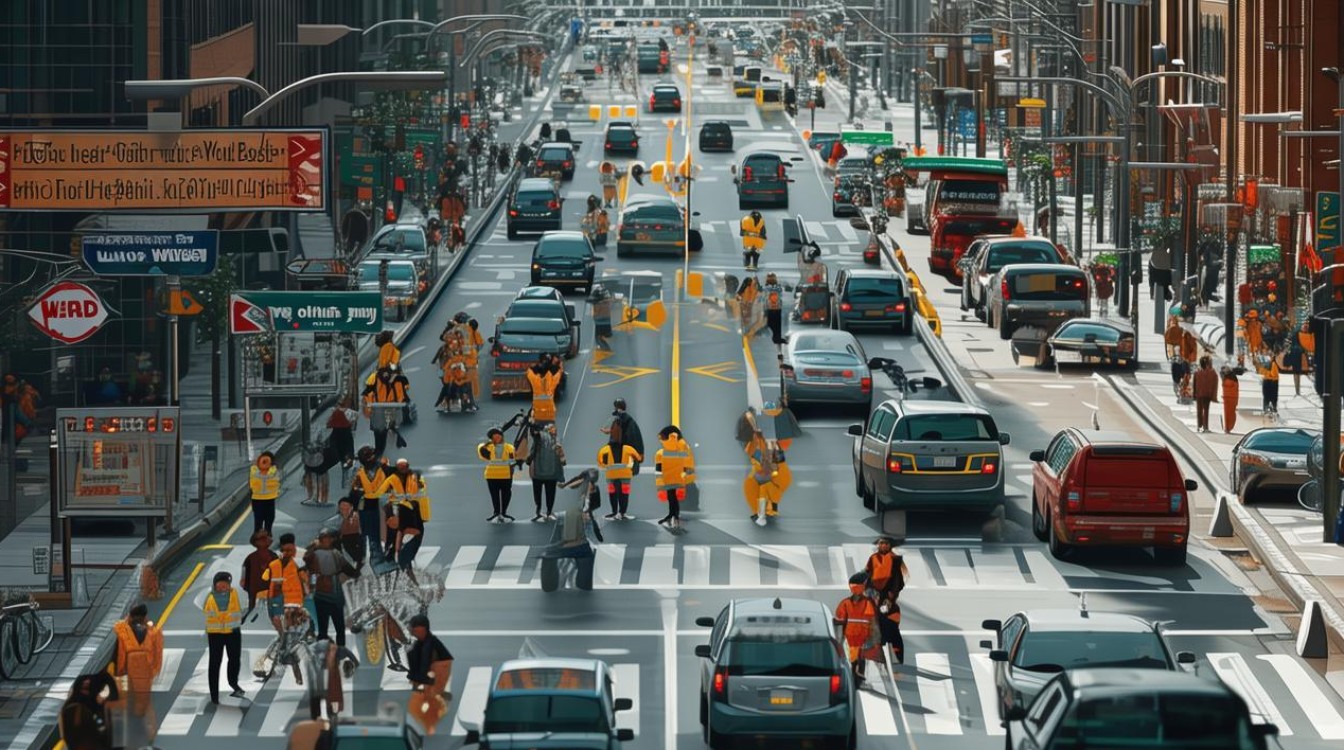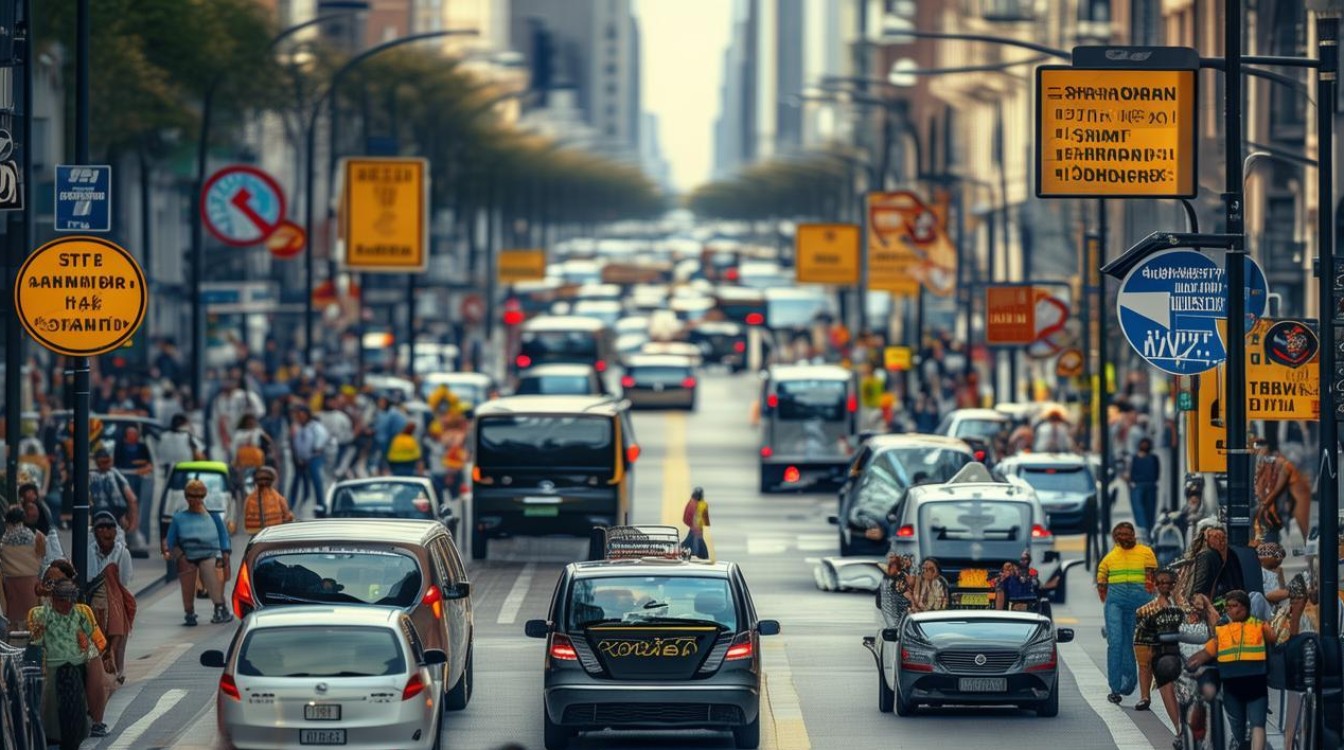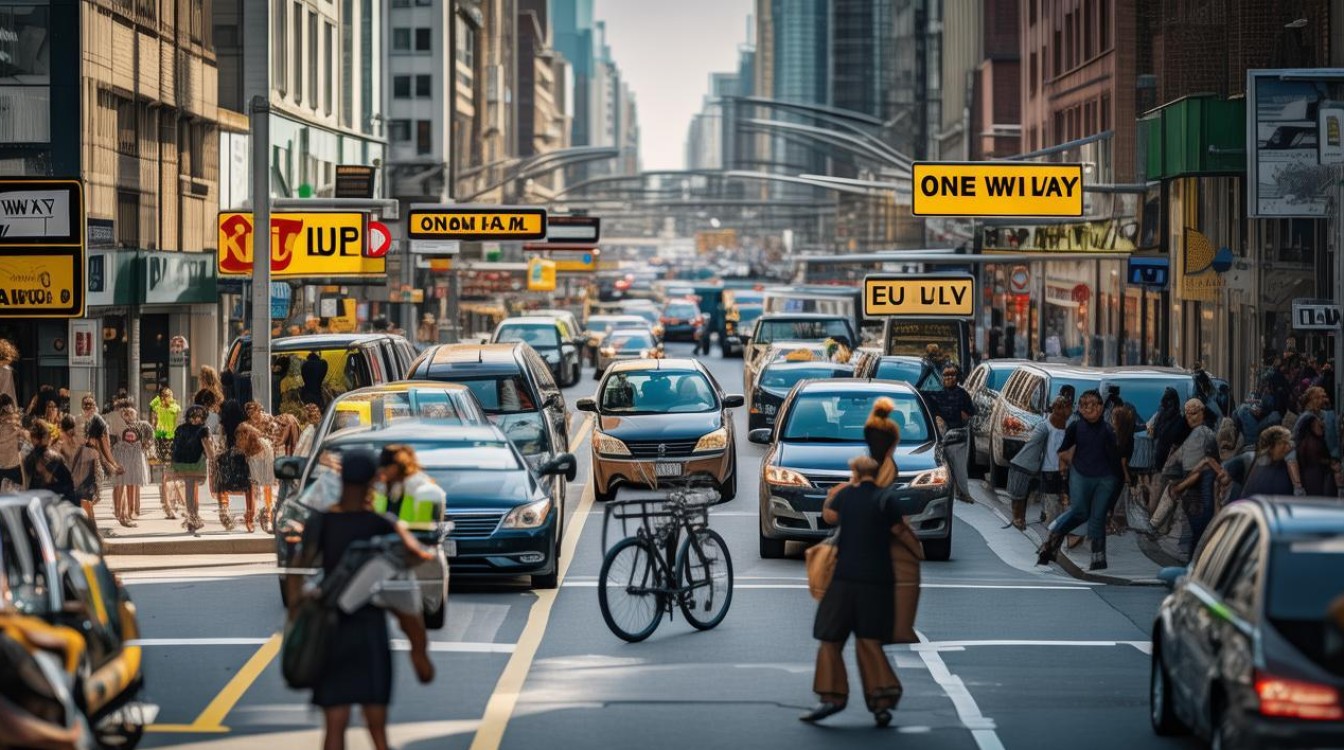Understanding traffic-related terms in English is crucial for travelers, expats, and language learners. Whether you're driving abroad, taking public transport, or simply discussing urban mobility, this guide covers key words and phrases to help you communicate effectively.

Basic Road and Traffic Terms
- Traffic light – The signal controlling vehicle and pedestrian movement at intersections.
- Crosswalk (UK: Zebra crossing) – Marked paths for pedestrians to cross roads safely.
- Roundabout – A circular intersection where traffic flows counterclockwise.
- Speed limit – The maximum legal speed allowed on a road.
- One-way street – A road where vehicles can only move in a single direction.
- Yield (UK: Give way) – Allowing other vehicles or pedestrians to go first.
Vehicle Types and Transportation Modes
- Sedan – A standard passenger car with four doors.
- SUV (Sports Utility Vehicle) – A larger vehicle designed for both city and off-road use.
- Motorcycle – A two-wheeled motor vehicle.
- Bicycle – A human-powered two-wheeler.
- Bus – Public transport carrying multiple passengers.
- Subway (UK: Underground/Tube) – An underground rail system.
- Taxi (UK: Cab) – A hired car with a driver.
Common Traffic Signs and Symbols
- Stop sign – An octagonal red sign requiring a full halt.
- No parking – Indicates parking is prohibited.
- Pedestrian crossing – Warns drivers to watch for people crossing.
- Detour – A temporary route due to road closures.
- Slippery road – Warns of reduced traction, often due to rain or ice.
Driving and Road Conditions
- Congestion – Heavy traffic causing delays.
- Rush hour – Peak travel times, usually mornings and evenings.
- Accident – A collision involving vehicles or pedestrians.
- Roadwork – Construction or repairs on a roadway.
- Pothole – A damaged area in the road surface.
- Traffic jam – A severe slowdown or standstill in traffic flow.
Public Transport Vocabulary
- Ticket – A pass for using public transport.
- Platform – The area where passengers wait for trains or buses.
- Schedule/Timetable – A list of departure and arrival times.
- Transfer – Switching from one transport line to another.
- Fare – The cost of a transport ticket.
Useful Phrases for Commuters
- "Is this seat taken?" – Asking if a spot is available.
- "How often does the bus come?" – Inquiring about frequency.
- "Which line goes to downtown?" – Asking for directions.
- "I need to get off at the next stop." – Informing the driver.
Mastering these terms enhances confidence when navigating English-speaking regions. Whether driving, cycling, or using transit, clear communication ensures smoother journeys.

As a frequent traveler, I find that knowing these words reduces stress and helps in unexpected situations—like reroutes or delays. A solid vocabulary makes any commute more manageable.


